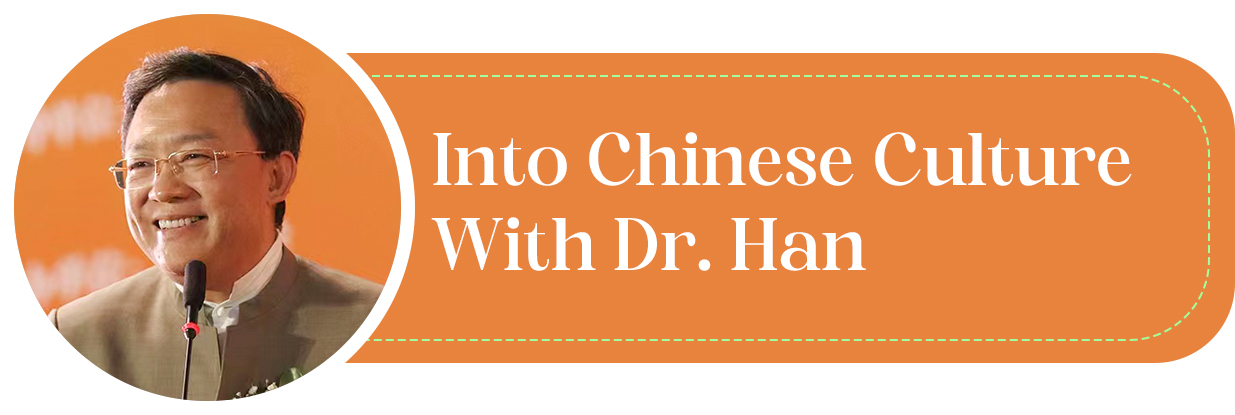Xunzi, great master of Confucianism
Writer: Han Wangxi | Editor: Zhang Chanwen | From: Shenzhen Daily

Xunzi, whose given name was Kuang, was a figure from the State of Zhao in the late Warring States period (475-221 B.C.). He was the final great master of Confucianism in the pre-Qin period. His works were later compiled into a 32-chapter collection known as “Xunzi.”
Xunzi had extensive knowledge and remarkable insight. At the age of 50, he traveled to the State of Qi and served as a libationer three times at the Jixia Academy. After being slandered by the people of Qi, he left for the State of Chu, where the Prime Minister of Chu, Lord Chunshen, appointed him as the magistrate of Lanling.
Xunzi’s most outstanding achievement was nurturing Han Fei and Li Si, who ultimately altered Chinese history. Han and Li studied the art of governance under the tutelage of Xunzi in Chu. After completing his studies, Li went to Qin and became the right-hand man of Qin’s king, Ying Zheng.
Later, when the Qin army encroached upon the borders of Qin, they demanded Han, who, in the guise of an emissary, also entered Qin, thereby contributing to the establishment of Qin’s dominance over the six states.
Xunzi faced a bleak situation. When annotating “Xunzi,” the Tang Dynasty (618-907) scholar Yang Jing said: “In the Warring States period, Shen Buhai and Shang Yang were cruel, and Sun Bin and Wu Qi were deceitful. By using family connections to judge guilt, they killed many people. Those who discussed and advocated were focusing on Shen, Mo, Su and Zhang, and thus the path of Confucius was nearly extinguished. Those with aspirations were deeply grieved. Therefore, Mencius elaborated on the former, while Xunzi invigorated the latter.”
It can be said that both Mencius and Xunzi were two great masters who illuminated Confucianism for generations.
Of particular note is the differing perspective of human nature between Xunzi and Mencius. Mencius believed in the inherent goodness of human nature, while Xunzi believed in the inherent evil of human nature.
He wrote an article named “Human Nature Is Evil,” in which he frankly analyzed human nature, stating, “The evil of human nature is clearly apparent; those who are good are only pretending to be so.” According to Xunzi, goodness is not innate but rather a result of postnatal rites, righteousness and education.
If human nature is evil, how should society be governed? It should be governed with emphasis on ceremonies and the esteem of righteousness.
Xunzi wrote an article called “Discourse on Ritual.” He stated: “What gives rise to rituals? It is said: People are born with desires, and if these desires are not fulfilled, they will seek fulfillment. If seeking is immeasurable, unbounded, and has no limits, they will inevitably contend; contention leads to disorder, and disorder leads to ruin. The ancient kings abhorred disorder and therefore established rituals and righteousness to divide all these.”
The essence of Chinese culture is to govern the country and secure the peace. Xunzi’s assertion of the evil nature of human beings aimed to establish a set of ceremonial laws.
Although Xunzi discovered the evil in human nature, he did not dwell on it; instead, he found a way to improve human nature and construct a system of rites and laws to “transform the nature and cultivate the false.” Through cultivation and education, people could become like Yu.
He provided an excellent example: if two brothers divide their property according to their own selfish human nature, they will inevitably strive against each other; but if they are educated in rituals and righteousness, they will yield to one another. Therefore, according to human nature, brothers would contend, whereas through education, they would be courteous to each other.
If Mencius represents the idealism of Confucianism, then Xunzi epitomizes its realism. Xunzi particularly emphasized learning, stating, “The learning of the noble person serves to enhance his character.”
Through learning, we can transform and elevate our inner selves. Xunzi highly extolled the virtues of learning, self-improvement and noble conduct, believing that through learning, accumulating goodness and cultivating virtues, anyone could become a wise king.
(The author is a cultural scholar.)
(Translated by Shenzhen Daily)